Today’s models of health care require varied professions to closely work together, which is why we are committed to developing a collaborative, practice-ready workforce to serve communities in Minnesota and beyond.
Our thousands of health sciences students, who are enrolled in dozens of degree programs, learn with, from and about each other to develop interprofessional competency in practice.
Through the Center for Interprofessional Health, each of our learners get to train together in the clinical learning environment. Our community and clinical partners also play a vital role in this training. With more than 3,000 clinical training partnerships serving as training sites—many of them in rural or underserved communities—we touch every part of the state.
We are also committed to enhancing our own academic health campus and expanding opportunities for collaboration from across the health sciences to help us prepare our students for team-based care. Our recently announced vision to ensure our state has independent teaching hospitals will help advance our clinical training and education, strengthen Minnesota’s health care and health professions, and make our state a leader in the health of all Minnesotans for generations to come.
I invite you to share your voice in this conversation and dream together for how we build this vision of academic health.
Driving Innovation & Discovery
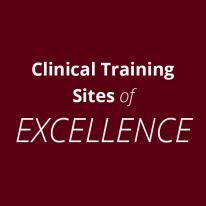
Nominations Open for Clinical Training Sites of Excellence
The nomination period for the 2022 OACA Clinical Training Sites of Excellence Awards is now open. This program was developed as a way to recognize community and clinical partners who have provided exceptional support for U of M health sciences learners. These may be external or internal clinical partners. The nomination period will close on Feb. 17, and those being recognized will be announced by the end of March/early April.
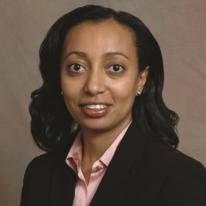
Talking Cervical Cancer Awareness and Health Equity
Cervical cancer was once a leading cause of cancer death for women in the United States. Thanks to screening and prevention measures, today the impact of this form of cancer has been greatly reduced. However, nearly 14,500 women in the U.S. still received a diagnosis of cervical cancer in 2021. That same year, more than 4,200 died from the disease, according to the National Cancer Institute. For Cervical Health Awareness Month this January, Rahel Ghebre, MD, MPH, sat down with the Masonic Cancer Center to answer questions about cervical cancer.
Advancing Interprofessional Education & Training
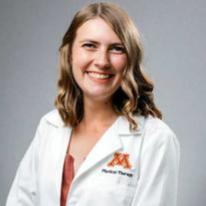
Students: What Do You Enjoy Most About Interprofessional Activities?
“I am already using what I have learned throughout my interprofessional activities during clinical rotations right now. I have already seen firsthand the importance of communication within a team, not just within the rehab team, but also throughout the spectrum of care.” - Kayla Fingerson, doctor of physical therapy student
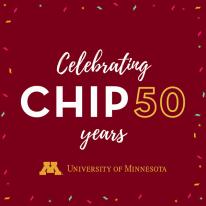
CHIP Stakeholder Sessions
The Center for Health Interprofessional Programs (CHIP) celebrated their 50th anniversary as a unit dedicated to health science student leadership and engagement in an interprofessional setting. They are now looking forward to intentionally building collective vision and purpose for the next 50 years. As a building block of the strategic planning process, CHIP invites their many stakeholders to feedback sessions to help inform CHIP's future plans.
Partnering with Communities
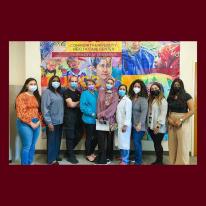
Community Health Matters: CUHCC Coordinates Care for Incoming Afghan Refugees
Over the past year and a half, the Community-University Health Care Center has played a key role in a U of M multi-agency partnership with the Minnesota Departments of Health and Human Services, and the Mobile Health Initiative. This partnership acted as an emergency response team that provided mobilized health care and coordinated screenings to newly arrived Afghan refugees. Between 2021 and 2022, they served over 1,200 displaced Afghans.
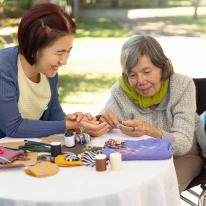
Dementia Friends Information Session
Join a one-hour Dementia Friends Information Session, hosted by MN GWEP on Feb. 15, to increase your understanding of people experiencing dementia and help make your community dementia friendly. Learn five key messages about dementia, what it’s like to live with the disease, and how to turn your understanding into action that supports people living with dementia.

Share Among Your Networks: Project REACH Interest Form
Project REACH (Rural Experts Advancing Community Health) is a year-long program that provides diverse community leaders in rural Minnesota with health policy and leadership training. Please share this opportunity with individuals working or living in rural Minnesota who want to improve health in their community. Completion of the interest form is required by Feb. 20.
U-Wide Events and Opportunities

Mental Health and Nutrition Workshops: Nutritional Strategies to Support Mental and Cognitive Health
This three-part series of 75-minute online workshops (Feb. 21, March 21 & April 18) includes information about three pillars of nutritional approaches to mental health: diet, micronutrients, and the microbiome. You will learn how micronutrients and the microbiome impact common conditions like depression, anxiety and ADHD, and dietary strategies commonly used to support mental and cognitive health. This series is offered by the U of M Earl E. Bakken Center for Spirituality & Healing and the Integrative Psychiatry & Wellness Program.



